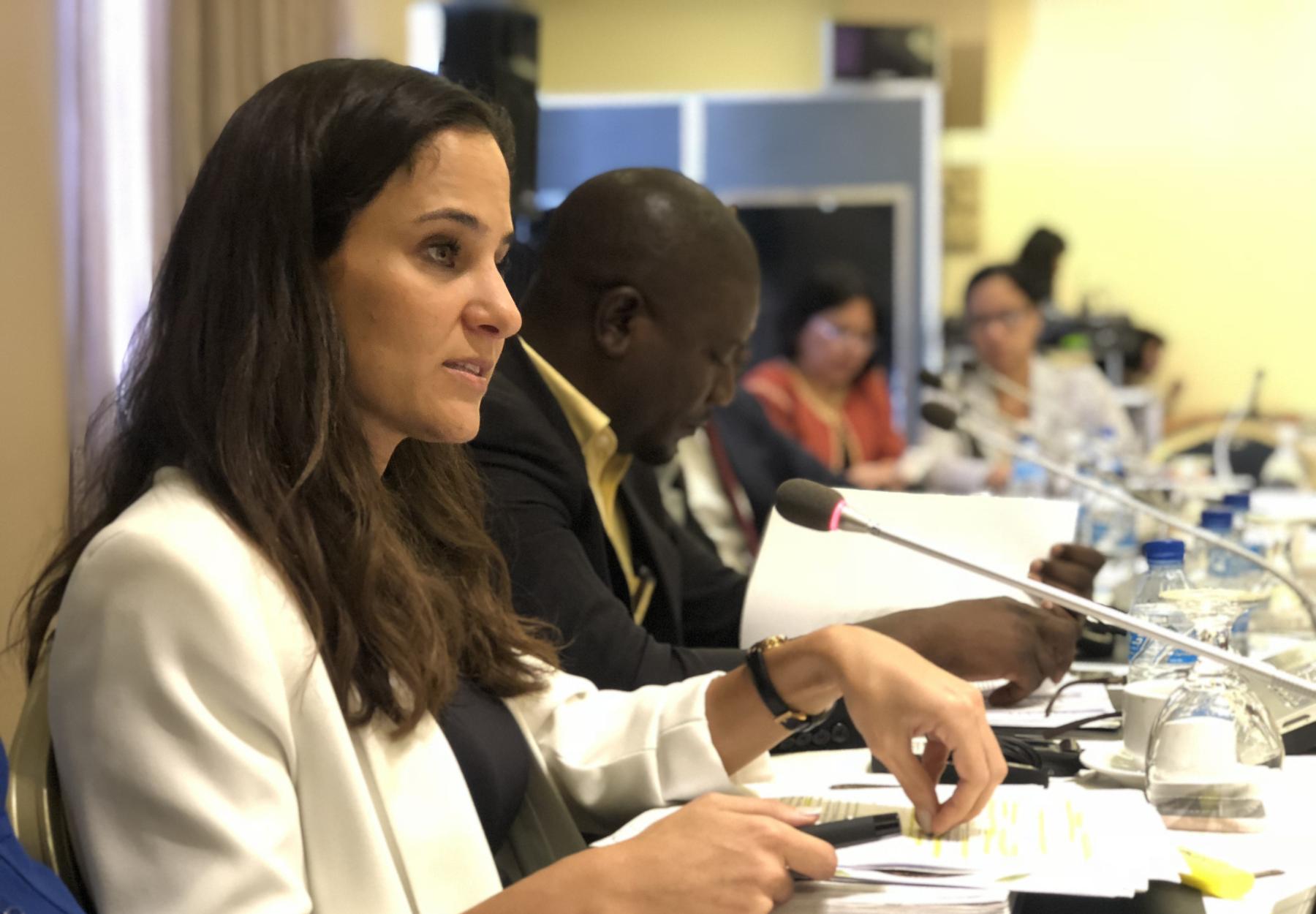
Participants at a conference held in Amman have announced in a statement that conflict and fragility constitute a major global threat to the implementation of the 2030 Agenda for Sustainable Development. They noted that approximately 1.8 billion people live and are affected by these conflicts, and this segment is the poorest in the world.
The three day conference on 'Development and Humanitarian Support in Wars and Conflicts" was held upon invitation of APN, the Arab Group for the Protection of Nature and the Arab Network for Food Sovereignty (ANFS), in partnership with The CSO Partnership for Development Effectiveness (CPDE) Working Group on Conflict and Fragility.
Held on November 10 to 11, the conference brought together 45 delegates from different world regions.
In a key-note speech at the opening session, APN's general coordinator, President of ANFS, Razan Zuayter emphasized that most of the efforts made in conflict areas seek to cover the human side while neglecting the developmental and relief aspects, and the most dangerous thing is that they do not seek peace and do not look at the root causes of conflicts. She noted that there are forces that seek to perpetuate these conflicts, especially in "our world".
Zuayter added that "Although we began to feel that the international community listen to us, we still note that the absence of accountability and the political will to respond to calls for radical solutions constitute the most important challenges to peace building.
She indicated the importance of regional and global civil society’s movement and unity in this field. It has a great impact, she said, towards imposing the issue of discussing conflicts, wars and occupation as a priority when discussing sustainable development policies in the most important international platforms, as it was considered a big taboo just a reference to it.
Zuayter said APN has been able to lead the initiative of civil society efforts to establish fair bases in negotiations on dealing with food insecurity in crises at the global level, especially in the Committee on World Food Security, based in the Italian capital, Rome.
She continued calling for the occupation to be considered as a major cause of poverty and hunger in the world. Zuaiter stressed that civil society should follow up efforts to implement the policies agreed upon by all countries in the United Nations forums, and the efforts should be unified to prevent the development of relief and development efforts in conflict countries to become a source of livelihood and trade.
Beverly Longid, one of the co-chairs of the CPDE said she valued the notion of civil society organizations meeting in one place. She affirmed the importance of discussions on the issue of the nexus of “humanitarian Work, development and peace) saying views of governments and foreign agencies are the most often heard on this issue, but it is time to hear voices on the ground on such an important nexus.
For his part, Talal Al-Fayez, Director of the Food and Agriculture Organization of the United Nations (FAO) in Jordan, warned that there would be no food security or development if there was no actual action to stop conflicts and bring peace.
He noted that 76% of the displaced come from 5 countries from The Arab region (Iraq, Syria, Yemen, Libya and Sudan), pointing out that this number does not include Palestine, which has more than 8 million registered refugees. Al-Fayez indicated that this situation requires a focused effort to stop the conflicts, wars and occupation that cause severe consequences for poverty, development, growth and food security and human well-being.
The final statement issued by the conference stressed that durable solutions to humanitarian crises cannot be achieved without lasting and just peace, and to address the causes and roots of conflict. It included a rejection of the increased use of aid as a "quick solution" to humanitarian emergencies without paying attention to long-term development that reflects national priorities.
The participants discussed the implications of the triple nexus of humanitarian support, development and peace building, in terms of challenges and opportunities to meet the needs of the most vulnerable people in the world.
They indicated that marginalized sectors are often the hardest hit by humanitarian crises, and that development activities funded by donors and international financial institutions can exacerbate the plight of these sectors rather than alleviate them. The statement concluded by saying that the current facts in the contexts of conflict, fragility and occupation reflect the worst humanitarian crises that violated many, if not all, of international laws and United Nations instruments.